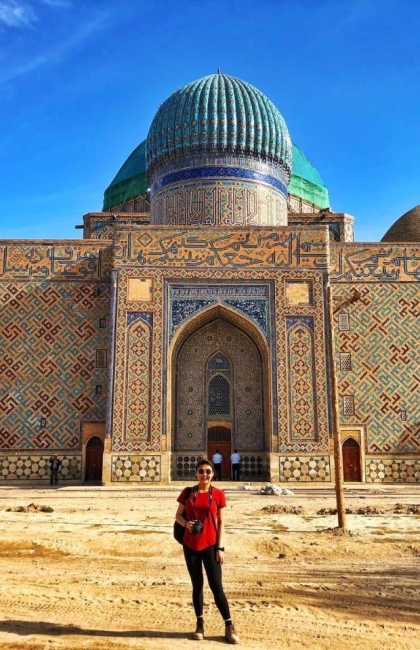Berikkara Tract
Nestled within the Aksu-Jabagly National Park, the Berikkara Tract serves as a sanctuary for rare and endangered animals, birds, and plants.
Within the tract, diverse varieties of wild apple trees flourish, including the Sievers apple tree, which is considered the progenitor of all modern apple varieties. Notably, the Berkkara poplar, an endemic species exclusive to the tract, graces the scenery alongside the Caucasian hackberry, Semenov maple, and the Greig tulip. While it is widely acknowledged that Kazakhstan is the birthplace of tulips, the lesser-known fact is that these flowers trace their origins to the Berikkara Tract.
The tract boasts the growth of more than 50 species of rare and valuable plants and trees, excluding representatives of less rare species.
As for the wildlife, the Berikkara Tract is a habitat for an impressive array of creatures, including roe deer, Indian porcupines, paradise flycatchers, argali, foxes, pheasants, partridges, and more. This biodiverse haven within the Aksu-Jabagly National Reserve stands as a testament to the region's ecological richness and the importance of preserving its unique natural heritage.
How to get there?
The journey from Taraz to the Berikkara Tract takes just over 1 hour, covering a distance of approximately 76 km (47 mi). The route begins on Tauke Khan Ave., leading onto Zhibek Zholy St. (A-2), and then turning right onto the R-43 highway. Once Lake Bilekol comes into view on the right, a right turn in the opposite direction will lead you to the Berikkara Tract.
Other tourist attractions near the Berikkara Tract:
- Lake Bilekol
- Taraz International Airport
- Mount Jetimshoki
- Mount Kebekkashkan
- Mausoleum of Aisha Bibi
- Mausoleum of Babaji Khatun

_420x650_4ab.jpg)
_420x650_4ab.jpg)
